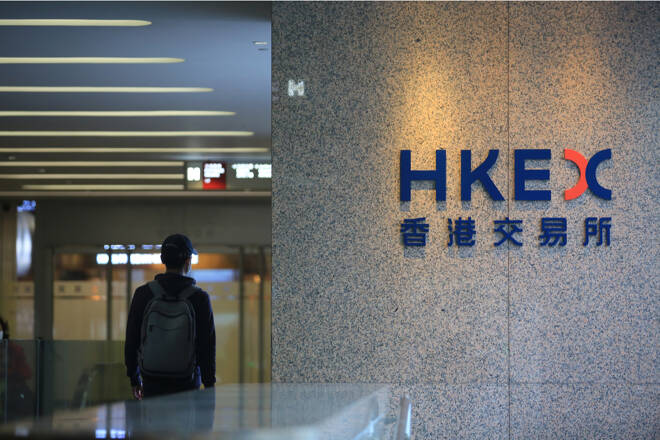Advertisement
Advertisement
Hang Seng, Nikkei, ASX 200 React to Trump’s Tariffs—What’s Next for Markets?
By:
Key Points:
- Trump’s tariffs on China, Canada, and Mexico shake global markets, raising inflation risks and Fed rate hike concerns.
- China’s Caixin Manufacturing PMI dips to 50.1, fueling fears that new US tariffs may weigh on consumer sentiment.
- Nikkei 225 plunges 2.48% as risk-off sentiment dominates, despite USD/JPY gaining 0.34% amid dollar strength.
Trump’s Tariff Shock: Global Markets Tumble Amid Economic Uncertainty
Is a new trade war brewing? Here’s what it means for investors. US equity markets fell on January 31 as investors assessed US economic data and new tariff policies. The Nasdaq Composite Index dropped by 0.28%, while the Dow and the S&P 500 fell 0.75% and 0.50%, respectively.
Late in the Friday session, the White House announced that US President Trump would impose tariffs on Canada, China, and Mexico, effective February 1. Tariffs may drive import prices and inflation higher, potentially signaling a more hawkish Fed rate path. Rising borrowing costs may, in turn, affect company earnings and valuations.
US Personal Income and Outlays Report Tests Fed Rate Cut Bets
On January 31, the US Personal Income and Outlays Report dampened expectations of an H1 2025 Fed rate cut. The Core PCE Price Index rose 2.8% year-on-year in December, mirroring November’s trend. Resilient inflation and strong personal income and spending figures supported Fed Chair Powell’s cautious stance on rate cuts.
China Caixin Manufacturing PMI Drops Ahead of Tariffs
On Monday, February 3, China’s economy faced scrutiny amid US tariff news. The Caixin Manufacturing PMI slipped from 50.5 in December to 50.1 in January. While domestic demand prevented a drop below the critical 50 level, the latest tariff news could impact consumption.
The January survey revealed weakening labor market conditions that may weigh on sentiment and spending. Weaker sentiment may question the effectiveness of China’s consumption-focus stimulus measures.
Hang Seng Index Drops in Post-Holiday Blues
After the Lunar New Year break, the Hang Seng Index fell 0.56% on Monday morning. Investors reacted to the US tariff announcement. However, the losses were modest relative to the broader market. China’s initial response was measured, easing fears of an immediate trade war.
News of China filing a lawsuit at the World Trade Organization (WTO) against the US tariffs offered modest support. However, experts were skeptical about its effectiveness. Natixis Asia Pacific Chief Economist Alicia Garcia Herrero commented:
“Trump imposes 10% tariffs on Chinese goods and China files a lawsuit at the WTO… not that it is going to help. Welcome to a trade war on steroids.”
Real estate stocks suffered heavy losses, with the Hang Seng Mainland Properties Index sliding 1.82%. The Hang Seng Technology Index dropped by a more modest 0.48%. Baidu (9888) tumbled 5.69%, while Alibaba (9988) rallied 5.89% on AI sentiment.
China’s mainland equity markets remained closed for the Lunar New Year holiday and will resume trading on February 5.
Risk Aversion Weighs on Nikkei Index
Japan’s Nikkei Index slid by 2.48% on Monday morning despite the USD/JPY pair advancing by 0.34% to 155.690. Trump’s tariffs triggered a flight to safety, strengthening the US dollar while weighing on risk assets.
Tokyo Electron (8035) declined by 2.25%, while export-linked stocks Sony Corp. (6758) and Nissan Motor Corp (7201) posted losses of 2.15% and 6.01%, respectively.
ASX 200 Slumps Amid Global Trade War Threats
Australia’s ASX 200 Index fell 1.75% on Monday morning. Mining stocks led the losses as investors reacted to the potential impact of US tariffs on demand.
Mining giants BHP Group Ltd. (BHP) and Rio Tinto Ltd. (RIO) saw declines of 1.98% and 2.54%, respectively. The S&P/ASX All Technology Index also struggled, falling 1.87%.
Outlook: Risks and Opportunities Ahead
Geopolitical tensions, US tariff policies, and AI sector developments will influence market sentiment. While AI stocks may outperform, trade-sensitive industries like mining could face heightened volatility.
The Hong Kong, Mainland China, and Australian markets could rebound if China holds off retaliatory tariffs and strengthens its AI space. Conversely, escalating trade tensions could impact risk sentiment, potentially overshadowing AI developments.
Discover strategies to navigate this week’s market trends here.
About the Author
Bob Masonauthor
With over 28 years of experience in the financial industry, Bob has worked with various global rating agencies and multinational banks. Currently he is covering currencies, commodities, alternative asset classes and global equities, focusing mostly on European and Asian markets.
Advertisement
